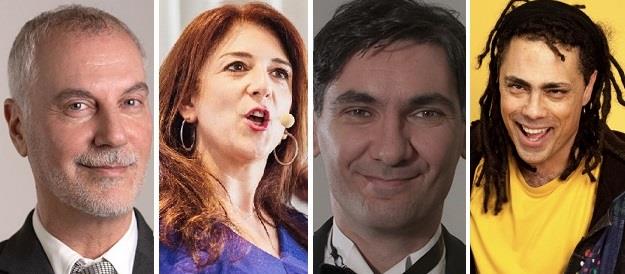
Artists have welcomed the government’s move to “protect artistic expression” but they argue that it should not have had to come to this.
“It’s a welcome step, but it’s sad that it was necessary,” said playwright and theatre professional Malcolm Galea when he was asked to share his views on the bill presented by the government to provide “enhanced protection of artistic expression”.
He said that people in general were already protected by EU laws on freedom of expression.
“What needed to change was for the police to take more of an initiative when deciding which cases are worth pursuing and which will be a waste of everyone's resources and time,” he said.
This view was also shared by other artists contacted by The Malta Independent on Sunday.
The government on Tuesday tabled a bill in Parliament proposing changes to the law “to provide for the enhanced protection of artistic expression and in particular to provide for the avoidance of the misuse of the criminal justice system for the suppression of such form of expression”.
The changes will come about after the police will be taking artists to court following a criminal complaint filed by River of Love Pastor Gordon Manche, who felt offended by comments made in his regard.
Last month, it was reported that comedian Daniel Xuereb is to be criminally charged by police after making fun of Manché. In January, Matthew Bonanno, who runs the satirical news site Bis-Serjeta, was also charged with making online threats after he implied that the evangelical group should be carpet bombed. Teatru Malta Artistic Director Sean Buhagiar was also reported to the police for repeating previous quips from comedians.
In presenting the bill during a press conference on Monday, Home Affairs Byron Camilleri said that the government aims to pass these amendments prior to the suspension of Parliament for the summer recess. "We want to live in a country which embraces the liberty of artists," he said. He added that since the government believes in artistic expression, it felt it is within its duty to act when such a freedom of expression is being threatened.
“Opinion is legal. Hate speech and inciting violence are illegal. Easy,” actor Pia Zammit said.
Zammit said that hate speech refers offensive discourse targeting a group or an individual based on inherent characteristics (such as race, religion, or gender) and that may threaten social peace.
However, the comments targeting Manche do not qualify for any of these, she said.
Zammit expressed concern over the term ‘artistic expression’, singling out artists as a special breed “for no reason at all”.
A similar view was also shared by London based comedian Steve Hili, who fears the law will be abused by people spouting hate speech or committing hate crimes and claiming that they are artists – “similar to how bigots tried to hijack the whole freedom of speech debate”.
“From a personal perspective I’ve called people in authority and public figures much worse on Maltese stages before this law came in so of course I will continue to do so, but I would have done that anyway!”, he said.
On his part, actor Alan Montanaro said that many people in Malta may not fully understand the concept of comedy and satire and its various forms. He said that education plays a crucial role in addressing this issue.
Referring to comedy and satire he said that “it certainly shouldn’t be limited to pie-in-the-face slapstick humour.”
He added that artists have a responsibility to challenge societal norms and provoke thought, and they should have the freedom to pursue their work with no threats and no intimidations and that audiences have the right to be offended or not by what they see or hear.
However, “it’s essential to ensure that the conversation ends at offence and doesn’t escalate into censorship or the suppression of artistic expression.”
Playwright Malcolm Galea said that although cases like “Mr Manche’s against people who poke fun at him are unlikely to be won, they still constrict freedom of speech.”
In this regard he said that:
“New artists may be intimidated from tackling certain topics and people because of possible repercussions. More experienced artists may be discouraged as well because they might not feel like the hassle of spending the next few years talking to lawyers and going to court,” he said.
New and experienced artists alike may not be comfortable having their name come up in connection with a police charge on internet searches as it may be seen as a red flag to casual searchers, he added.
Although people who are charged will almost certainly win the case eventually, throughout the lengthy process, they may be advised to refrain from making fun of the complaining party again in case it is seen as harassment and potentially aggravate the charge. That way their freedom of speech will be silenced indirectly, he concluded.